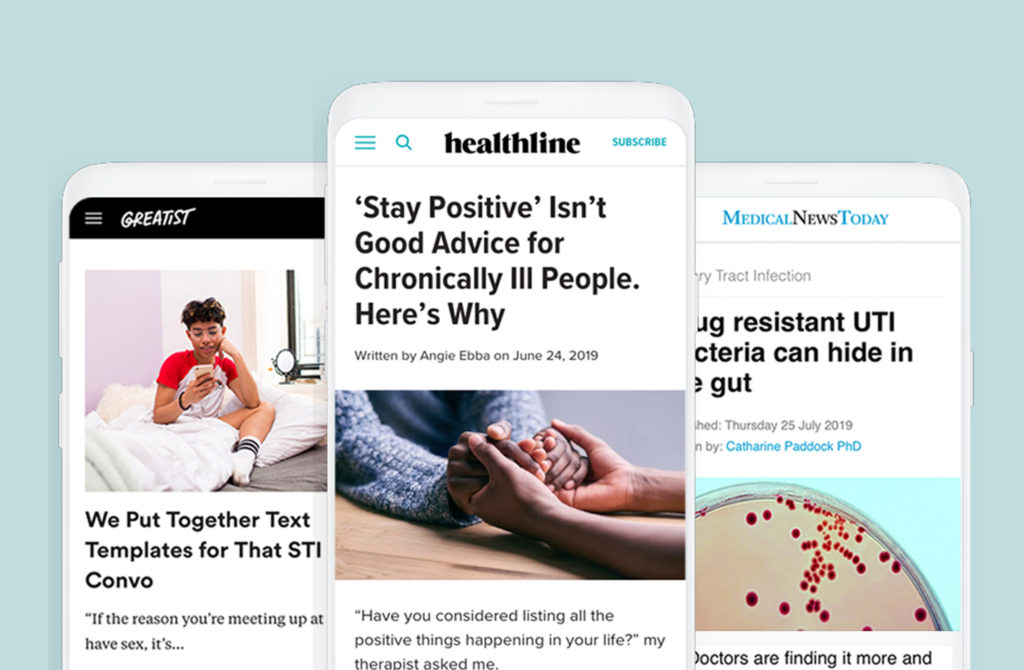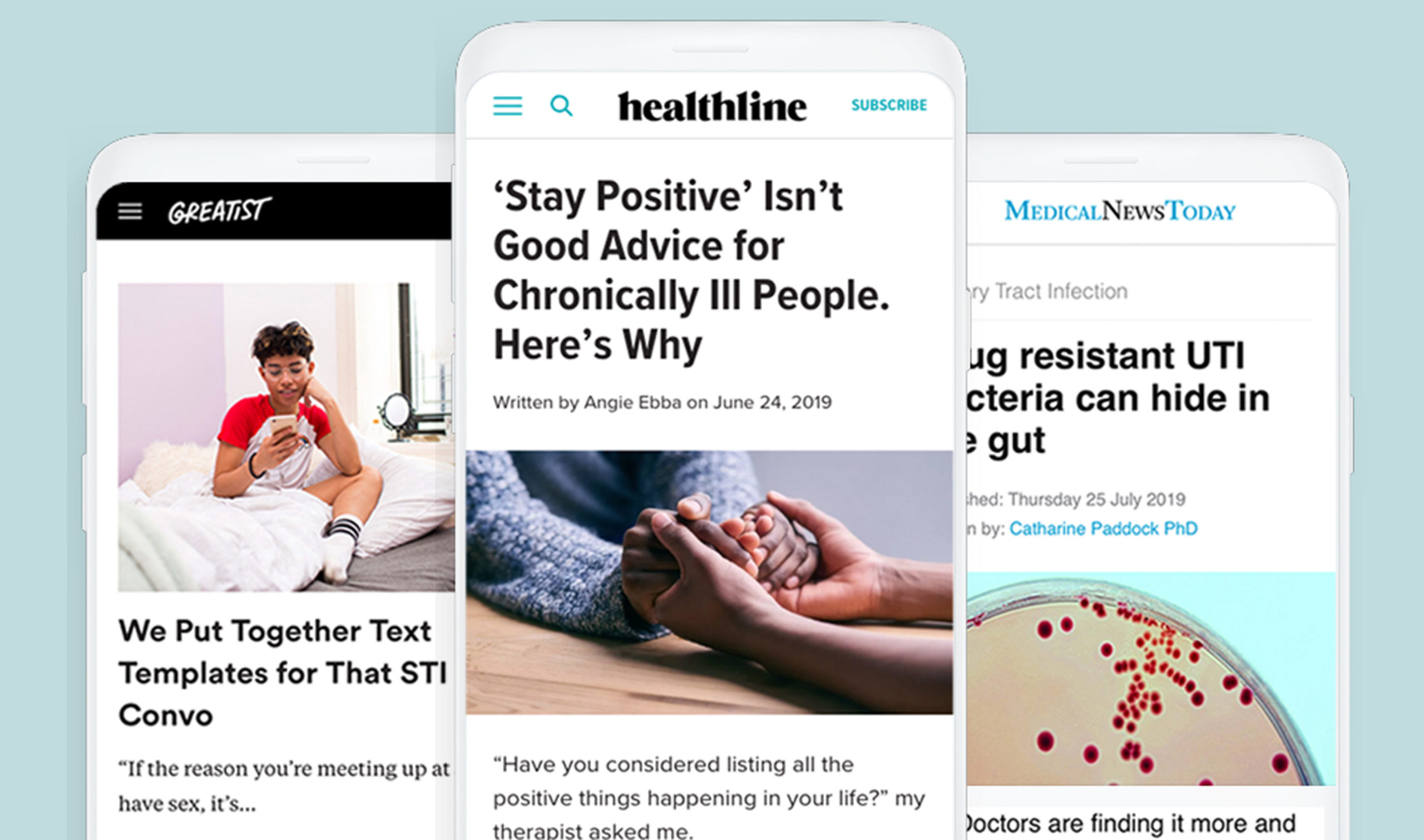PulsePoint Launches Marketing End-to-End Suite

The data and technology health marketing company announces the launch of Life by PulsePoint, a centralized end-to-end platform with a suite of applications. By unifying the company’s programmatic health and content marketing technologies, PulsePoint says healthcare marketers can now streamline digital marketing strategies with one platform compliant with privacy and HIPAA regulations. Perhaps most importantly, PulsePoint clients will now be able to seamlessly reach consumers and healthcare professionals in a microsecond, with multi-format, multichannel messaging.
“Many healthcare brands have branded and unbranded campaigns that need to reach different target audiences. Having to switch between multiple platforms or partners creates significant challenges when everyone needs the same things: Performance measurement or optimization of multiple campaigns in real time,” said Chris Neuner, Chief Strategy Officer of PulsePoint. “Automating these processes through programmatic technology allows marketers to launch campaigns that are smarter, more effective, and able to deliver more results faster.”
The Life platform accesses contextualized health content along with its related, engaged audiences to deliver relevant marketing messages through partner platforms such as Facebook, Instagram, Pinterest, and Twitter. It also reaches native, video, content discovery, search, display, and connected TV channels. Also included in this suite is the ability to activate data, insights, and audiences with machine learning via Genome by PulsePoint.
Roche Expands Global Access Program
Roche is expanding its current Global Access Program beyond HIV diagnostics to include these tests for tuberculosis (TB), hepatitis, and human papillomavirus (HPV) to support early detection, help save lives, and to end suffering where disease burden is highest.
“Accessible pricing can be the difference between a patient getting a quality diagnosis or not,” said Catharina Boehme, CEO of the Foundation for Innovative New Diagnostics (FIND)—a global non-profit devoted to the development and delivery of diagnostics for diseases that include TB and HCV. “FIND is proud to have worked with Roche to expand the Global Access Program for these deadly diseases, leveraging our support for its TB assay.”
Accessible pricing increases global access to screening. This allows for early detection and reduced transmission of the disease. Tuberculosis was selected as a part of this program as it is a major health crisis and is the leading cause of infectious disease deaths worldwide. Access to hepatitis diagnostic tests for HBV and HCV will improve the outlook of eliminating these chronic infections. And screening with HPV DNA testing can more accurately identify women at risk for cervical cancer than more traditional screening methods. Roche partnered with national governments, local healthcare facilities, communities and international agencies, including UNAIDS, CHAI, Unitaid, the U.S. President’s Emergency Plan for AIDS Relief (PEPFAR), Global Fund, and Centers for Disease Control and Prevention (CDC), to establish programs that would go beyond providing diagnostic tests.
DNA Data Deals Spark Privacy Concerns
Drugmakers recently paid millions of dollars to hospitals for access to the genetic data they collect from their patients. These companies want DNA data for its potential to reveal disease information and trends and guide useful drug developments—and are signing deals with hospital systems like Geisinger in Pennsylvania, Mount Sinai Health System in New York, and Mayo Clinic in Minnesota to sequence patients’ genetic code.
Some see this free genetic testing as a way to assess their risk of diseases and contribute to the advancement of healthcare science. But many health advocates are pointing out that patients may not realize how else their genetic data is getting used and the ways that hospital systems and drugmakers could profit from it.
In an age where data and personal privacy are two hot topics, the controversy is bound to grow. While pharma companies are attempting to secure troves of DNA data, all that has been publicly revealed is that these pricey agreements usually bar hospitals from releasing this info to other rival companies.
Link Found Between Common Prescription Drugs and Dementia
 While scientists have known that certain drugs may lead to a higher risk of dementia, researchers recently confirmed that a class of drugs called anticholinergics have a shockingly strong link to a rise in dementia in older patients. Anticholinergic drugs include antidepressants such as paroxetine or amitriptyline, bladder antimuscarinics such as oxybutynin or tolterodine, antipsychotics such as chlorpromazine or olanzapine, and antiepileptic drugs such as oxcarbazepine or carbamazepine.
While scientists have known that certain drugs may lead to a higher risk of dementia, researchers recently confirmed that a class of drugs called anticholinergics have a shockingly strong link to a rise in dementia in older patients. Anticholinergic drugs include antidepressants such as paroxetine or amitriptyline, bladder antimuscarinics such as oxybutynin or tolterodine, antipsychotics such as chlorpromazine or olanzapine, and antiepileptic drugs such as oxcarbazepine or carbamazepine.
The study, published in JAMA Internal Medicine, found a 50% increase in risk of dementia associated with a total anticholinergic exposure of more than 1,095 daily doses within a 10-year period. This is a likely scenario for older adults on any of these medications. “The study is important because it strengthens a growing body of evidence showing that strong anticholinergic drugs have long-term associations with dementia risk,” said Carol Coupland, Professor of Medical Statistics in Primary Care at the University of Nottingham and lead author. “It also highlights which types of anticholinergic drugs have the strongest associations. This is important information for physicians to know when considering whether to prescribe these drugs, but this is an observational study, so no firm conclusions can be drawn about whether these anticholinergic drugs cause dementia.”
While patients taking these drugs should not suddenly stop, physicians should consider this information when first prescribing medications or helping their older patients along their healthcare journey.
Although antidepressants, drugs to treat vertigo, motion sickness, or vomiting, and bladder antimuscarinic drugs, such as those used to treat overactive bladder, were linked to dementia in this data. Other anticholinergic drugs such as antihistamines, skeletal muscle relaxants, gastrointestinal antispasmodics, antiarrhythmics, or antimuscarinic bronchodilators did not seem to be associated with any significant increase in the disease.
Healthline Makes Digital Waves
 The health media web property took the #1 spot in ComScore’s health information category, surpassing WebMD Health by more than five million monthly unique visitors. The Healthline property also moved into the top 40—#39 overall—of all properties across the internet.
The health media web property took the #1 spot in ComScore’s health information category, surpassing WebMD Health by more than five million monthly unique visitors. The Healthline property also moved into the top 40—#39 overall—of all properties across the internet.
Healthline Media is no stranger to first place having remained #1 for mobile use among health information properties, as well as being first in the broader Health category for the sixth consecutive month.
The company is growing exponentially and is determined to change the health content game. Healthline’s MedicalNewsToday.com continues to move closer to overtaking Mayoclinic.org as the third-largest health information site in the U.S. The media mogul attributes its continued growth to its relentless focus on quality that delivers empathy, medical accuracy, meaningful community engagement, and content that communicates what consumers need along their health journeys.
A New Teva is Emerging Worldwide

Since 2018, Teva has been committed to changing with the times by understanding and meeting the needs of patients and those who dedicate themselves to improving their quality of life. In the process of evolving the 118-year-old company, Teva spoke to 16,916 patients, 10,753 caregivers, and 1,600 healthcare professionals. They realized that a refreshed brand would have to be flexible, meeting the specific needs of each community it serves around the world. Taking the time to get this process right, they already rolled out hyper-local market activations designed to make a real-world difference.
In Canada, the company found that the unrecognized efforts of 8.1 million caregivers affected their own health and life. By asking about their needs, the Caregiver-Friendly Pharmacy program was born, building a stronger bridge between caregiver and pharmacist because a better understanding of each others’ roles in the patient’s lives would benefit them all. The program, which trains pharmacists to better serve caregivers and offer them support, is now available in 1,000 pharmacies nationwide.
In the U.S. and UK, Teva launched Life Effects, a unique community for those with chronic conditions—asthma, depression, migraines, and multiple sclerosis—to not only get information but also to share their stories about living with pain and all the people it impacts within the patient’s sphere. In Russia, Teva realized how difficult it is for the disabled to have quality of life. They launched an app that maps wheelchair accessible routes throughout Moscow—and then throughout the rest of the nation.
In many more instances, Teva gathered a wealth of information and implemented it on the patient and caregiver level in order to make immediate and real changes to the lives of those in their communities. Following on these successes, Teva plans to continue their research and launch the same type of initiatives in more countries where Teva operates.
Novo Nordisk Extends Drug Collaboration
The pharma giant and e-therapeutics, a UK-based company with a unique and powerful computer-based approach to drug discovery, extended their research collaboration on Type 2 diabetes to now include genomic data usage. The companies plan to use e-therapeutics’ recently developed Genome-Associated Interaction Networks platform, or GAINs, which analyzes genetic information at the population level. Using masses of gene data, they hope to track genetic variants that relate to different traits seen in Type 2 diabetes (such as hypoglycemia risk) in order to develop more informed intervention strategies and identify biomarkers for better diagnostics.
“Over the last 20 years, the pharma industry has conducted many population genomics studies to understand the genetic basis of disease, most of which have met with limited success,” e-therapeutics CEO Dr. Ray Barlow said in a statement. “Using GAINs, we are now able to interrogate genomics data from patients with complex, polygenic disease and shed new light on important and novel biological pathways for particular groups of patients.”
In the midst of the gene data craze, the companies have revealed they will source their data from genome-wide association studies. Novo Nordisk will retain rights to license any products of their work.
The new agreement will also extend the companies’ use of e-therapeutics’ proprietary Network-Driven Drug Discovery (NDD) platform to discover potentially novel biological mechanisms and therapeutic approaches for a specific area of type 2 diabetes. The new agreement lasts until






